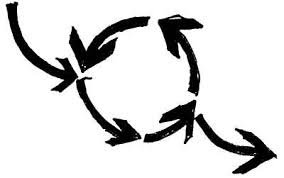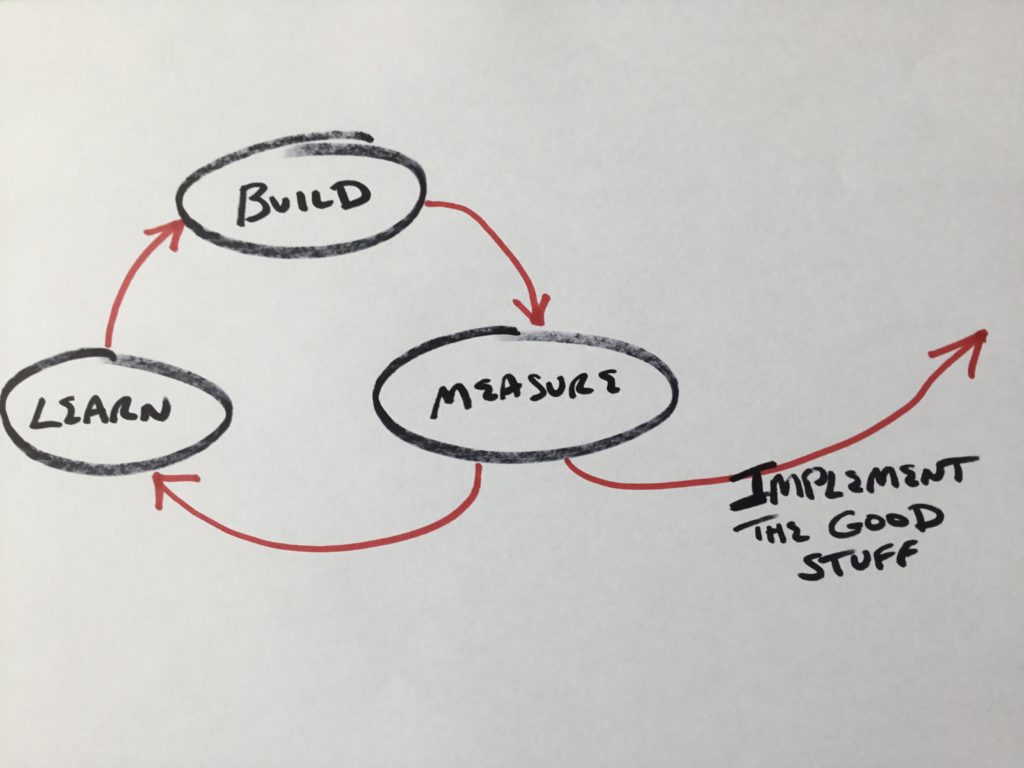
“I’ve realized that the key to being successful is not how good your ideas are, it’s how good you are at being able to find quick, cheap, and easy ways to try your ideas.” — Marc Randolph
We all know the successful innovation stories in Orthopedics. Stories about Danek, SpineTech, Kyphon, Arthrex, MAKO, Hand Innovations and Mazor Robotics that rocketed to success with innovation.
The common belief is that the founders had a brilliant innovation idea and executed it perfectly.
This is far from the truth.
All of these companies iterated their way to success.
No company inside or outside of orthopedics gets it right the first time. Amazon, Google and Facebook all iterated their way into success. Contrary to popular belief, Silicon Valley isn’t innovative… its iterative. Beneath the surface of the “Mona Lisa,” you’ll find layers of draft sketches, false starts, and major alterations.
The Iterative Process could be the most over-looked tool in Orthopedics for innovation and success. As we enter the 2020s, this will be a killer app for orthopedic startups. Companies that create an iteration culture will win.
Definition
The definition of the Iterative Process is: A process for arriving at a decision or a desired result by repeating rounds of analysis or a cycle of operations. The objective is to bring the desired decision or result closer to discovery with each repetition (iteration).
Think of the iterative process as a trial-and-error company culture. It’s a way of thinking not a tool.
The big orthos cannot iterate. They are lost causes. Management is too afraid to make mistakes. This is why they over-pay for startups that have made the mistakes for them.
When I worked inside the big Orthopedic companies, the focus was “design perfection”. The project goal statement spelled out the perfect total knee or pedicle screw or extremities system. Engineers would grind for years and then announce that the final design was ready for testing. There are obvious problems with the perfection approach – slow, costly, lack of new products in the pipeline, not enough customer feedback, group think, etc.
Every year, there are a select few orthopedic companies who learn to iterate for innovation. This is where the magic happens.
Personal Experience
Let me share my personal experience. From 2012-2016 at Ellipse Technology, we iterated our way to success. We out-innovated the competition (S+N, Synthes, Medtronic Spine) with a culture of iteration. Back in 2008, Ellipse was a little know VC-backed startup focused on bariatric control. We knew nothing about orthopedics. The culture and mindset was built on the iterative process. New ideas were built, tested, and evaluated at an alarming pace. If you missed a week, you would be amazed at the changes. All products and processes were fair game to iterate. A few examples:
- We redesigned our implant systems weekly. Can we make it better for our customers?
- We experimented with creative regulatory strategies. How do we find a way to receive 510(k) clearances for remote control implants in kids?
- We redesigned the implant assembly and testing processes weekly. Can we build the products faster and with less waste?
- We experimented with borderless sales strategies that quickly put us into 20 countries. Where are our evangelist customers and how do we best serve them?
- We reorganized the company every few months for speed. What is the best organizational structure and physical layout to go faster in the next six months?
Process
The mechanics of iteration are simple – build–> measure–> learn… and implement the good stuff.


 The Orthopedics Industry
The Orthopedics Industry